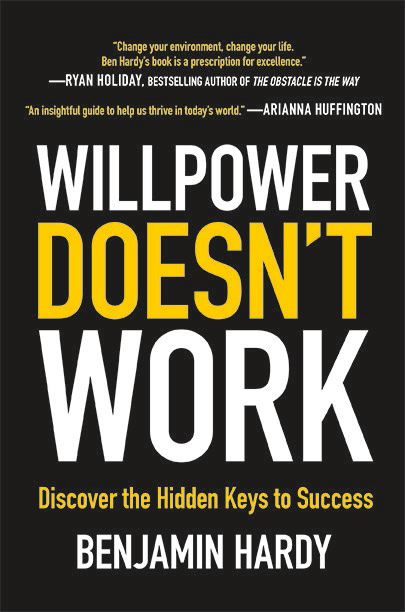You’re ready to make a change, so you throw your hat in the ring for a few opportunities that look interesting. You quickly get a couple of calls to set up interviews, talk to a couple of hiring managers, and…you don’t hear back.

This is frustrating because the company wouldn’t interview you if you didn’t look like a reasonable candidate on paper or if you didn’t come with a recommendation from your professional network.
So your resume and recommendations are strong enough to get interviews, but then the opportunities just sort of dry up.
What’s going on?
This is almost always a sign that you need better positioning.
Your job interviews are a part of your negotiation. The better you perform, the better your offer will be and the better you’ll be able make your case when you begin the formal salary negotiation.
Every question you’re asked is a chance to move them in this direction. Imagine you have a power meter that fills up a little more every time you give a great answer to an interview question. The more full that power meter is when they make you an offer, the better the offer will be.
Once you get into your interviews your job is to change the company’s thinking from “What’s the minimum we can offer this candidate to get them into this role?” to “What’s it going to take to convince this candidate to take this job?”
See the difference? You want to shift their thinking from “What’s the minimum salary we can offer?” to “What’s it going to take?”
Positioning is how you describe yourself as the hero this company needs, turning your skillset and experience into superpowers by matching them with the outcomes the business wants.
Let’s illustrate this with an example you may have experienced: Let’s say you’ve applied for a job as a software developer and you’re being interviewed by someone on the team you might work with.
Suddenly, you’re asked a common interview question that scares most people:
“Why should we hire you?”
You’re definitely qualified for the job, but this question catches you off guard, so you freeze up and say something like this:
“I’m a software developer.”
Maybe you elaborate a bit and mention the school you went to or the programming languages you’re familiar with. But in the end, your answer doesn’t really tell the interviewer anything new or compelling.
You’re not alone—that’s what most people would say! They might use more words, but their answer boils down to “I read the job description and I think I can do that job.”
Here’s what your answer might sound like when you leveraging strong positioning to stand out as the candidate for the job:
“You’re transitioning your application to Ruby on Rails, and I’ve been using Ruby on Rails for production client projects for two years. I can save your team a lot of time because I can start writing production code right away.”
Well, hello there! That’s a compelling answer that will impress your interviewer and significantly increase your chances of getting another interview and ultimately getting a high-quality job offer. And there’s a straightforward process you can follow to consistently give strong answers like the second one.
In a nutshell, positioning is how you show a company that you’re the person they need for a specific job.
But how do you do that? How did the Software Developer know the company was transitioning their application to Ruby on Rails?
Research!
Basic research you should do for each opportunity
You’ll start with basic research and careful preparation for your interviews. Your goal is to learn enough about the company and job you’re pursuing so that you understand exactly what they need. Once you have that information, will tell them why you are exactly what they need.
Here’s a short list of things you should look for as you discover exactly what the company needs:
- Company name
- Company size
- Mission statement
- Company goals
- Company challenges/struggles
- Company website and jobs page (a link to the specific job listing would be great, plus a link to their generic jobs page)
- What types of other jobs are they trying to fill right now? How many of each type?
- A summary of what your know about the company from blog posts, news, experience with their products, etc.
- Are they growing? How quickly?
Knowing that information before you go into an interview will help you be prepared to talk about the specific company and job you’re considering. And, more importantly, you’ll be able to tell a more detailed story about how their company will be better if you’re a part of it.
So where do you start? There are three main places where you’ll find pretty much everything you need: their company website, Google and Glassdoor.
This doesn’t need to be complicated—you’re simply doing the work that others won’t do. Here are the types of information you’re looking for:
- Company website—You’re particularly interested in their “Careers” or “Jobs” page, their home page, their About page.
- News and articles about them—Are other people talking about this company? What are they saying?
- Blogs—If they have a corporate blog, read a few entries to see what they’re talking about right now; if there are other blogs written about the company, see what others are saying about the company.
- Financial statements—If the company is publicly traded, then they’re required to file 10-Q (quarterly) and 10-K (annual) financial statements. You don’t have to read the entire thing, but the first page is usually pretty enlightening.
In general, bigger companies will have more information available than smaller companies. That’s ok. For now, all you’re doing is building a list of data sources you can use.
Use the short list of above to discover exactly what the company needs. Most of the information is publicly available, and some companies will have more information than others. But that’s ok because you just need basic information to get through the first interview or two.
How can you help them achieve their goals and address their pain points?
This is the key question you want to answer before your interviews. When you can tell the hiring manager how you’ll help the company or team achieve its goals and address its challenges, they will want to hire you.
Remember, they’re interviewing you because they need to fill an open position. That position is open because the company has needs or challenges that the person who does that job will help address. So when you tell them that you’ll help them address those needs and challenges, and you tell them how you’ll do it, you’re saying, “I am the candidate you opened this job for.”
Why would they look anywhere else?
Here’s the formula:
- Identify needs and challenges the company or team has.
- Identify specific ways you can help them address those needs and challenges.
- Answer interview questions by telling them how you’ll help them address their needs and challenges.
Let’s go back to the very beginning. The question we’re considering is:
“Why should we hire you?”
Most people are intimidated by this question because it’s so vague and open-ended. Usually, they’ll say something like, “Because I’m a software developer.”
A more experienced interviewer might say something like:
“I’ve been in this industry for 10 years, and I worked on a major project for ACME Corp and carried a lot of responsibility there. I also have experience managing teams and I have published five white papers on various topics.”
But look at who this candidate is talking about: I’ve, I, I, I.
That’s not good enough.
Don’t just talk about yourself. Talk about how you can help the company achieve its goals or address its pain points. You’ll still say “I”, but you’ll say it in the context of “you”.
This is a softball question, the perfect setup for you to tell them how you’ll help them meet one of their goals or resolve a challenge they’re having! Take advantage of it!
If you’ve done your research before the interview, then the first thing you’ll do when confronted with this question is think, “What is their most urgent need or challenge?” It will probably be pretty obvious since you’ve spent time reading about their company, but it’s ok to just pick something from your list if there isn’t any particular outstanding one.
Now that you’ve identified their most urgent need, ask yourself, “How can I help them address that need?” You’ve already been thinking about this before the interview, so it’s a slam dunk.
Then you put them together into a nice, short answer that tells them how you’ll help them address their most urgent need with your skillset and experience.
When companies hire people, they have a range they’re able to pay to fill the position, and they’re more inclined to pay at the higher end of that range if they find the right candidate. You want to be that candidate.
Another look at our Software Developer example from earlier
Before we wrap up, let’s jump back to the software developer example we saw earlier. Now that you know how to use positioning to answer interview questions, see if you can spot the need and how the developer describes the solution when asked “Why should we hire you?”
“You’re transitioning your application to Ruby on Rails, and I’ve been using Ruby on Rails for production client projects for two years. I can save your team a lot of time because I can start writing production code right away.”
You’re, your, I’ve, I, your, I.
Do you see it now? This answer is much more focused on the company and their needs.
The most urgent need this developer identified was a big transition to a new technology. The developer could directly help address that need because he had a few years’ experience with that specific technology.
All he had to do was tell the interviewer how he could help meet that need.
That’s an excellent use of positioning to answer a tricky interview question.
Use this process for every new opportunity
Let’s go back to our Positioning definition from the beginning of this series:
Positioning is how you describe yourself as the hero this company needs, turning your skillset and experience into superpowers by matching them with the outcomes the business wants.
For each opportunity you pursue, do the research described above, and consider the company’s goals and challenges. Then think about how you can use your skillset and experience to help the company address those goals and challenges.
Do that for every opportunity and you’ll stand out from other candidates and get more high-quality job offers.
Glassdoor.com | May 28, 2018 | Posted by Josh Doody











